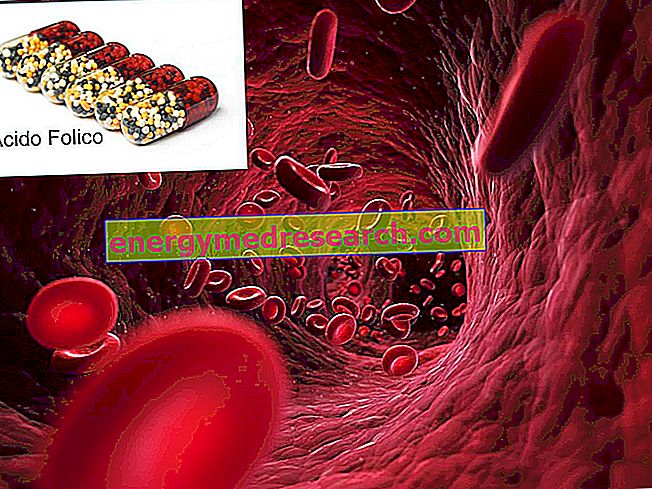
What is Aldara?
Aldara is a cream containing the active ingredient imiquimod. It is available in sachets of 250 mg of cream, each containing 12.5 mg of imiquimod (5%).
What is Aldara used for?
Aldara is indicated for the treatment of adult patients with the following skin diseases:
- condyloma (warts) external genital and perianal acuminates;
- small basal cell carcinomas (a type of slow-progressing skin cancer);
- actinic keratoses on the face and skull (abnormal, precancerous thickening of the horny layer of the epidermis, following excessive exposure to sunlight) in immunocompetent patients (with fully functioning immune defenses), when other therapeutic options are not indicated such as cryotherapy (therapeutic use of very low temperatures).
The medicine can only be obtained with a prescription.
How is Aldara used?
The application frequency and duration of treatment with Aldara depend on the type of condition to be treated.
- In the treatment of genital warts, Aldara must be applied three times a week for a maximum of 16 weeks.
- For the treatment of small basal cell carcinomas, it is necessary to apply the cream five times a week for six weeks.
- For the treatment of actinic keratosis, the cream must be applied three times a week, for one or two four-week cycles, leaving an interval of four weeks between the different cycles.
The cream must be applied to the affected area in a thin layer before going to sleep, so that it remains on the skin for an appropriate period of time (about eight hours) before being washed off. For more information, see the package leaflet.
How does Aldara work?
The active ingredient of the Aldara cream, imiquimod, is a modifier of the immune response. This means that, to produce its effects, the substance exploits the immune system, which is the body's natural defense system. When imiquimod is applied to the skin, it acts locally on the immune system to induce the release of cytokines, including interferon. These substances promote the elimination of viruses that cause the formation of condyloma or abnormal skin cells, with the consequent development of skin tumors or keratoses.
What studies have been carried out on Aldara?
In all the studies Aldara was compared with placebo (a dummy treatment with the same cream, deprived of the active ingredient).
- Aldara has been studied in four major 16-week studies involving 923 patients with genital warts. The main measure of effectiveness was the number of patients presenting complete elimination of the treated warts.
- Aldara was also examined in two studies involving 724 patients with small basal cell carcinomas, treated for six weeks, who used Aldara or placebo five times a week or every day. The main measure of effectiveness was the complete elimination of tumors after 12 weeks.
- Aldara has been studied in patients with actinic keratosis in two studies involving a total of 505 patients. The main indicator of effectiveness is the number of patients whose keratosis disappeared after one or two four-week treatment cycles.
What benefit has Aldara shown during the studies?
In all of the studies, Aldara was more effective than placebo.
- In the treatment of genital warts, the overall rate of healing in four main studies was 15-52% in patients treated with Aldara compared to 3-18% in patients treated with placebo.
- Analyzing together the results of the two studies conducted on patients with small basal cell carcinomas, complete recovery was observed in 66-80% of patients treated with Aldara compared to 0-3% in the placebo group. There was no difference between the two dosage regimens.
- In the two studies conducted on subjects with actinic keratosis, complete recovery was recorded after one or two treatment cycles in 54-55% of patients treated with ALDARA compared to 15 and 2% of patients treated with placebo.
What is the risk associated with Aldara?
The most common side effects that may occur when using Aldara (seen in more than 1 patient in 10) are reactions in the area of application of the cream (pain or itching). For the full list of all side effects reported with Aldara, see the Package Leaflet.
Aldara should not be used in people who may be hypersensitive (allergic) to imiquimod or any of the other ingredients.
Why was Aldara approved?
The Committee for Medicinal Products for Human Use (CHMP) has decided that Aldara's benefits are greater than its risks for the treatment of external genital and perianal acuminate condylomata ( Condylomata acuminata ), small basal cell carcinomas and non-hypertrophic actinic keratoses, hyperkeratotic, in immunocompetent adult patients, when other topical therapeutic options are contraindicated or not appropriate. The Committee therefore recommended that Aldara be given marketing authorization.
Other information on Aldara:
On 18 September 1998, the European Commission granted Alda a marketing authorization valid for the whole of the European Union to Meda AB. The marketing authorization was renewed on 18 September 2008.
Click here for the full EPAR for Aldara.
Last update of this summary: 09-2008



